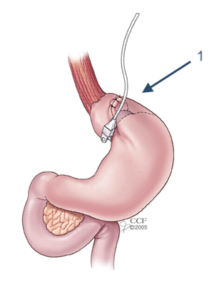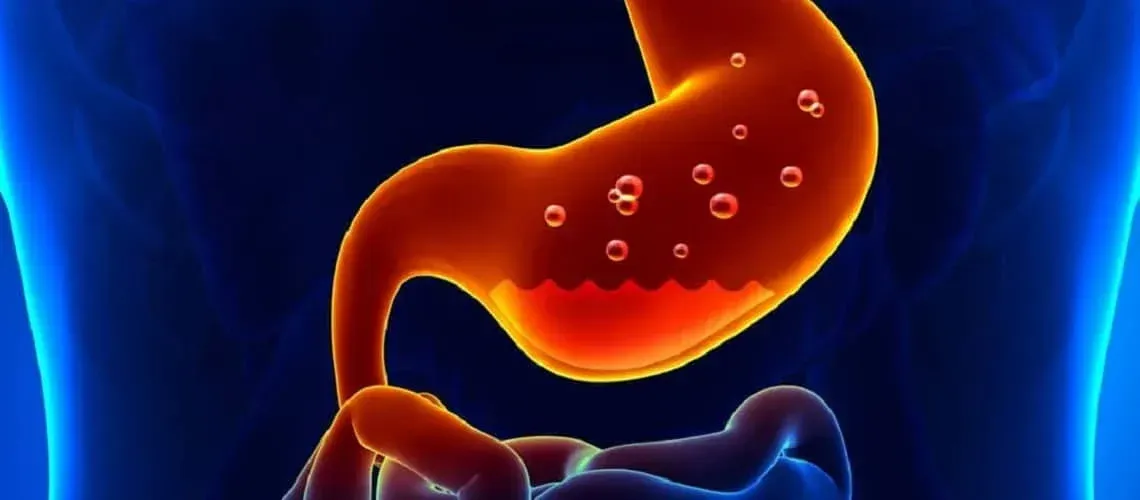Gastro SB Weight Loss Clinic: Medications Used for Weight Loss

INTRODUCTION
A number of medications are approved by the US Food and Drug Administration (FDA) for the treatment of overweight or obesity. It is essential that the medications are used in conjunction with healthy eating, physical activity, and behavior modification, as medication usage without such changes are generally ineffective. These medications should be obtained from a medical doctor or certified weight loss clinic.
The decision to initiate drug therapy in overweight individuals should be made after consideration of the risks and benefits, and the goals of drug therapy should be clear.
GOALS OF THERAPY
The goal of any treatment (including drug therapy) for overweight individuals is long-term weight reduction and improvement in overall health.
- Reduce and Maintain Weight L oss – In short-term (6 to 12 months) clinical trials evaluating drug therapy, weight loss of 4 to 8 percent is typical.
Upon initiation of anti-obesity medication, we communicate several important messages to patients. First, not every drug works for every patient; individual responses vary widely. Second, when the maximal therapeutic effect is achieved, a plateau is reached and weight loss ceases. Finally, when drug therapy is discontinued, weight gain can be expected.
Achieving and maintaining weight loss is made difficult by many factors, including weight loss-induced changes in energy expenditure and hormonal mediators of appetite, which favor weight regain. Therefore, we favor using anti-obesity medications longer term for weight loss maintenance if they are well-tolerated and individuals have achieved a greater than five percent weight loss while on them.
- Improve Health Status – If improvement in one’s health is the goal, success may be measured by the degree of weight loss and measurable or perceived improvement in physical function, comorbidities, and/or sense of well-being. Weight loss should exceed 2 kg during the first month of drug therapy (1 pound per week), fall more than 4 to 5 percent below baseline between three to six months, and remain at this level to be considered effective. A weight loss of 5 to 10 percent can substantially reduce the development of diabetes in those with prediabetes and reduce blood pressure and risk factors for cardiovascular disease in patients with cardiovascular risk factors.
Improvement in health status after weight loss is an important criterion in the determination of whether to continue drug therapy.
- Minimize Adverse Effects – The potential benefits of weight loss must be considered in light of the potential risks of drug therapy.
The longest clinical trial examining the safety and efficacy of pharmacotherapy for weight loss utilized orlistat for four years. Thus, in patients wishing to use anti-obesity medication for longer than four years, the lack of longer-term safety (and efficacy) data should be made known.
OUR APPROACH
Our approach outlined below is based upon the available clinical trial evidence and clinical expertise. Our approach is largely consistent with published guidelines.
General principles
- Initial management – Thorough and honest counseling from a medical doctor, gastroenterologist , or weight loss clinic, around healthy eating, physical activity, healthy sleep habits , and health-seeking behavior is essential for every patient seeking weight loss, whether these lifestyle changes are used alone or in combination with anti-obesity medication or bariatric surgery.
- Approach to underlying comorbidities – An important component of the initial evaluation of patients with overweight or obesity is the assessment of weight-related comorbid conditions such as diabetes mellitus, dyslipidemia, hypertension, heart disease, sleep apnea, and symptomatic osteoarthritis.
For patients with specific comorbidities, we prefer a weight-centric approach to chronic disease management, trying, if possible, to select the drugs to treat the comorbidity that may produce weight loss, rather than weight gain. Several drugs are well known to produce weight gain and should be avoided if good alternatives are available. Medications used to treat diabetes, depression, and autoimmune diseases are particularly notorious for causing weight gain.
Candidates for drug therapy — Candidates for drug therapy include those individuals with a body mass index (BMI) ≥30 kg/m 2 , or a BMI of 27 to 29.9 kg/m 2 with weight-related comorbidities, who have not met weight-loss goals (loss of at least 5 percent of total body weight at three to six months) with a comprehensive lifestyle intervention alone.
The decision to initiate drug therapy should be individualized weighing the risks and benefits of all treatment options (lifestyle, pharmacologic, device, surgical). Recommendations for use of drug therapy vary among clinicians.
Choice of agent — Pharmacologic options for the treatment of obesity include liraglutide (daily injection), orlistat, combination phentermine-extended release topiramate (in one capsule), combination bupropion-naltrexone (in one extended-release tablet), phentermine, benzphetamine, phendimetrazine, and diethlpropion. In meta-analyses of randomized trials comparing pharmacologic therapy with placebo, all active drug interventions are effective at reducing weight compared with placebo. Many of the trials in the meta-analyses have serious limitations, however, including short duration of study, high attrition rates, heterogeneity, and inadequate reporting of important clinical outcomes (eg, cardiovascular outcomes). In addition, there are few head-to-head trials comparing the individual therapies, and it is uncertain whether people who fail to respond to one therapy will respond to another.
For patients who are candidates for pharmacologic therapy, the choice of anti-obesity drugs is often governed by the comorbidities and relative contraindications present in the individual patient. As an example, although metformin does not produce enough weight loss (5 percent) to qualify as a “weight loss drug”, it is a good choice for overweight individuals at high risk for diabetes. This topic is reviewed in detail elsewhere.
When a decision has been made to initiate pharmacologic therapy, our approach takes into account patient comorbidities, patient preferences, insurance coverage and cost, and potential adverse effects. Single agents are preferred over combination medications as initial pharmacotherapy.
- Liraglutide , a GLP-1 receptor agonist approved for the treatment of obesity, is administered as a once-daily subcutaneous injection. Liraglutide has beneficial effects on glycemia in addition to demonstrated efficacy for weight loss. It may be used in patients with or without diabetes, but it is the preferred drug in patients with type 2 diabetes, and particularly in those with cardiovascular disease owing to its demonstrated reduction of cardiovascular events in this population.
- Semaglutide, another GLP-1 agonist, is administered as a once weekly subcutaneous injection. It has demonstrated efficacy in weight reduction, as well improvement in glycemia and lipids. Although available and approved for the treatment of type 2 diabetes, it has not yet been approved for the treatment of obesity. Similar to liraglutide , the FDA-approved dose for type 2 diabetes has also demonstrated cardiovascular benefits.
Gastrointestinal side effects (nausea, vomiting), the need for an injection, and insurance coverage/cost may limit the use of these agents.
- Orlistat has proven benefits with regard to glycemia, lipids, and blood pressure. There are long-duration trials with orlistat demonstrating its safety profile. Unfortunately, it frequently causes gastrointestinal side effects and is often not tolerated by patients.Due to its limited tolerability, and the established safety and benefits of other available agents including liraglutide , we no longer consider orlistat to be first-line pharmacotherapy.
- Combination phentermine-topiramate (extended release) is an option for males or postmenopausal females with obesity without hypertension or coronary heart disease, particularly those who do not tolerate orlistat or liraglutide. The efficacy for weight loss of phentermine-extended release topiramate appears to be greater than for either orlistat , but it may have more side effects (eg, increased heart rate, dose-related increase in the incidence of psychiatric [eg, depression, anxiety] and cognitive [eg, disturbance in attention] adverse events). It may be an acceptable option for a patient with an obesity-related comorbidity, such as sleep apnea, who does not have any cardiovascular disease.
The presence of topiramate in this combination may increase risk of fetal malformations, and should thus be used with caution in females of childbearing potential. Such patients should be advised about the teratogenic potential of the medication, counseled to use reliable contraception, and should have a pregnancy test before initiation of therapy and monthly thereafter.
- Combination bupropion-naltrexone (sustained release) produces similar weight loss as orlistat, but it has more side effects and contraindications. Owing to the uncertainty about cardiovascular effects, we prefer to use orlistat or liraglutide, rather than bupropion-naltrexone.
- Phentermine, benzphetamine, phendimetrazine and diethylpropion are only approved by the US Food and Drug Administration (FDA) for short-term (ie, 12 weeks) use, have more side effects, and have potential for abuse. However, some clinicians and their patients choose to use phentermine for longer periods of time, owing to long-term clinical experience with this drug.
Monitoring
- Weight, vital signs – After initiating pharmacologic therapy, we monitor weight loss, blood pressure, and heart rate every six weeks. If patients do not lose 4 to 5 percent of body weight after 12 weeks of therapy (at the maximum tolerated dose), the drug should be tapered and discontinued. Although it is uncertain whether those who fail to respond to one drug will respond to another (or to a combination drug), this approach can be tried if the patient and clinician believe the benefits outweigh the risks.
- Blood sugar in patients with diabetes – Weight loss may cause hypoglycemia in patients taking medication for diabetes, especially insulin or insulin secretagogues (eg, sulfonylureas, meglitinides), and in such patients, self-monitoring of blood glucose (SMBG) should be performed more frequently for safety. SMBG should be performed at least daily in people with type 2 diabetes treated with insulin or insulin secretagogues during initiation and dose titration of weight loss medications. In patients with well-controlled diabetes, it may also be advisable to reduce the doses of sulfonylureas or meglitinides during the first four weeks of treatment with an anti-obesity drug and adjust as needed based on blood glucose values.
- Adverse effects – We ask about adverse effects during every visit. More specific monitoring instructions depend upon the drug initiated. As an example, phentermine-topiramate and burpropion-naltrexone may cause neuropsychiatric side effects, and patients taking these drugs should be monitored for depression or suicidal thoughts. Patient taking liraglutide should be monitored for symptoms of acute pancreatitis and gallbladder disease. Hyperchloremic, non-anion gap metabolic acidosis and increases in serum creatinine have been reported in patients treated with phentermine-topiramate because topiramate is a carbonic anhydrase inhibitor. Thus, serum electrolytes (including bicarbonate) and creatinine should be measured before and approximately four weeks after initiation of this combination.
Source: Uptodate ®
Learn More About Weight Loss Procedures
Patient Education: Procedures for Weight Loss (The Basics)
Patient Education: Procedures for Weight Loss & Surgery (Beyond the Basics)
Procedures for Weight Loss . . . WE’RE IN IT TOGETHER
Obesity in Adults: Behavioral Therapy & Weight Loss Clinics
Patient Education: Health Risks of Obesity & Weight Loss Tips (The Basics)
Weight Loss Tips and Medications
Patient Education: Health Risks Of Obesity
Weight Loss Surgery Options And Procedures
Procedures For Weight Loss Treatments
Obesity In Adults Dietary Therapy And Weight Loss Coaches
The post Gastro SB Weight Loss Clinic: Medications Used for Weight Loss appeared first on Gastro SB.










